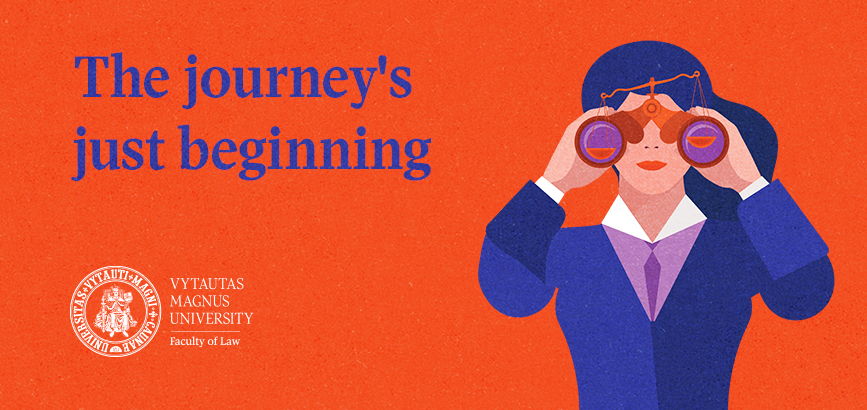International Law Summer School 2020
The courses will take place on 4 May – 10 June, 2020 at Vytautas Magnus University Faculty of Law.
PICK THE COURSE(S) – 4 ECTS EACH:
4 – 13 May INTERNATIONAL BUSINESS TRANSACTIONS (prof. Daniel Barnhizer, Michigan State University College of Law)
This course surveys the complex subject of international business transactions. This includes international sales of goods, financing international transactions, payment systems, establishing and operating foreign investments, operating under the General Agreement on Tariffs and Trade and World Trade Organization, intellectual property and technology transfer, criminal law, dispute resolution, and other issues. All of these topics relate to one basic problem — how to engage in a business transaction with a foreign entity or person. In domestic trade, both parties are subject to the same sovereign government that controls the law and the sanctions that apply to the parties. The parties likely share a common language, similar business norms, and may even operate in the same financial circles. International business transactions involve issues of different governments, different locations, different laws, different languages (in many cases), different business norms, and other issues that potentially increase the complexity of the transactions by orders of magnitude. This course will give enough experience to be aware of some of these risks to be able to effectively advise clients or prepare a respond to those risks
4 – 9 May ARTIFICIAL INTELLIGENCE AND LAW (prof. Miglė Laukytė, Pompeu Fabra University Barcelona)
The course is dedicated to introduce law students to Artificial Intelligence (AI) and robotics and legal issues related, caused or impacted by them. The overall goal is to make students think, critically assess and form a position on the new challenges to the legal, philosophical and ethical assumptions that current legal knowledge and expertise is based on. In particular, the course aims to look at where the AI is heading and what risks it is raising from the legal perspective. This objective is out of reach without making students familiar with some of the basic concepts and the early applicationson which the current advancements of AI and robotics are being build upon.
18 – 27 May INTERNATIONAL TRADE IN THE ERA OF TRUMP (prof. Jorge Ramirez, Texas Tech University School of Law)
Since taking office, the Trump administration has delivered on its promise to disrupt the status quo in global affairs and put the interests of the United States and its people first. Many have pointed to the irony of this new U.S. policy, given the role it played as one of the primary actors in helping to create the seven-decade multilateral order it now seeks to disrupt. That world order included establishment of an international economic infrastructure that sought to break down barriers to trade, strengthen world economies shattered by war, and develop mechanisms to resolve international disputes peacefully. This course provides an introduction to international trade law and its infrastructure from an American perspective, and examines its evolution under the Trump administration’s “America First” policy. We begin with a brief history of U.S. international trade negotiations and move on to use aspects of its various trade compacts (e.g., NAFTA/USMCA and WTO) to examine the evolution of U.S. trade policy and make predictions about its future path and impacts upon the global stage.
18 – 27 May THE EUROPEAN CONVENTION ON HUMAN RIGHTS IN THEORY AND PRACTICE (prof. Stefan Kirchner, University of Lapland, prof. Tatsiana Chulitskaya, Vytautas Magnus University)
The course will focus on describing the evolution of human rights in international law under treaties and international customary law, the small number and weak mechanisms to put into force these human rights, the limits to the enforcement of human rights in international law, and the content of some international human rights law.
1 – 10 June MERGERS AND ACQUISITIONS (prof. Arkadiusz Radwan, Vytautas Magnus University)
Mergers and Acquisitions (M&A) are pivotal moments in the life of companies. They involve a number of challenges for senior executives, shareholders, employees, and other stakeholders. They also raise a number of legal questions and require compliance with rules and regulations governing the deal preparation & structure, the acquisition process and the protection of various corporate constituencies. The course covers the key legal aspects of the M&A activity, including negotiated share deals, statutory mergers, merger alternatives, leveraged transactions (including MBO), hostile takeovers of listed companies, cross-border corporate reorganisations as well as some aspects of post-acquisition integration and follow-up disputes. The primary focus is on legal issues with other questions (financial, strategic, tactical) being integrated into the main thread. The course deals with M&A of European companies with some comparative (US) and some sectoral (financial, technology) add-ons.
1 – 10 June COPYRIGHT LAW (prof. Bernd Justin Jütte, University of Nottingham)
The course will introduce students to the core aspects of copyright and their harmonization at EU level. Were appropriate international and comparative elements will be integrated to widen to focus. The course will introduce students to copyright from a historical perspective and map the systematic differences between common law and civil law jurisdictions. International Agreements have significantly shaped copyright and they still serve as mean of interpretation for the rules at EU and national levels. Copyright is harmonized at EU level in by a number of directive and regulations. Harmonization started in 1991 with the first Software Directive and has recently been reshaped by the 2019 Directive on copyright in the Digital single market.
Students will explore what subject matter is protected by copyright and what rights authors and rightsholders enjoy. The focus will be on the economic rights of reproduction, distribution and the right of communication to the public. Subsequently, the course will examine the European system of limitations and exceptions and compare it to the US fair use doctrine, which is often discussed as model for reform. In this context the influence of fundamental rights on EU copyright law will be illustrated. Finally, the course will address the current system and debate on intermediary and platform liability for infringing content. The course will equip students with a basic understanding of the main elements of copyright law and the current policy and academic debates. At the end of the course students will be able to apply the principle underlying copyright law in the context of their domestic legal system, critically engage with the harmonize copyright rules at EU level and appreciate the tension between exclusive right and the interest of the public.
Fee: 1 ECTS = 50 EUR.
Application: The deadline for submitting the application is 28 April, 2020.
Contact person:
Dr. Aušrinė Pasvenskienė
Jonavos st. 66, LT-44191 Kaunas
+370 37 327925
ausrine.pasvenskiene@vdu.lt













